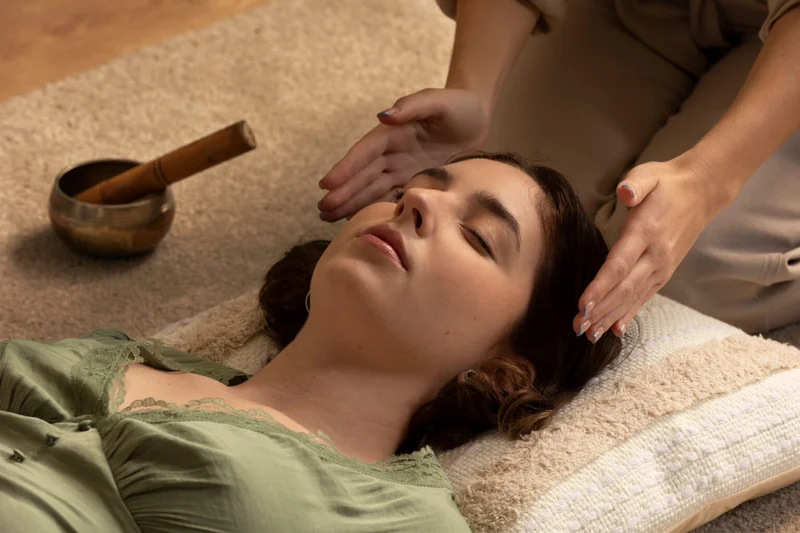Ask Ayurvedic doctor a question and get a consultation online on the problem of your concern in a free or paid mode. More than 2,000 experienced doctors work and wait for your questions on our site and help users to solve their health problems every day.
Panchakarma: Ayurvedic Detox and Rejuvenation Therapy

Panchakarma, derived from Sanskrit, translates to “five procedures ” or “five treatments.” This therapeutic regimen is designed to systematically purify and rejuvenate the body, mind, and spirit. Rooted in the fundamental principles of Ayurveda, Panchakarma seeks to restore the body’s innate balance (or doshic equilibrium) by eliminating accumulated toxins (ama) and restoring optimal functioning to bodily systems. These procedures are supposed to be performed in a specific order or as stand alone treatments as prescribed by the doctor according to the state and the stage of disease. Every procedure has specific indications and contradictions that need to be followed properly. As opposed to a popular notion, PANCHKARMA is not massage or therapies likewise but detailed scientific procedures that need to be executed scientifically under the guidance of qualified doctors.
The Five types of Panchakarma:
- Vamana (Therapeutic Emesis): This initial phase involves the administration of medicated emetics to induce controlled vomiting, expelling excess Kapha dosha from the upper respiratory tract and stomach.
- Virechana (Purgation Therapy): Following Vamana, Virechana employs carefully selected herbal laxatives to facilitate gentle yet thorough cleansing of the gastrointestinal tract, eliminating accumulated Pitta dosha and toxins.
- Basti (Enema Therapy): Basti, or medicated enemas, serves as a potent means of cleansing and nourishing the colon and entire lower gastrointestinal tract. This therapy targets Vata dosha, offering profound relief from conditions rooted in its imbalance.
- Nasya (Nasal Administration): Nasya involves the administration of medicated oils or herbal preparations via the nasal passages. This practice serves to clear the sinuses, alleviate respiratory congestion, and balance Kapha dosha in the head and neck region.
- Raktamokshana (Bloodletting Therapy): Though less commonly practiced today, Raktamokshana entails the therapeutic removal of a small quantity of blood to alleviate conditions associated with impurities in the blood.
The Panchakarma Experience:
Embarking on a Panchakarma journey is a deeply personalized experience, beginning with a comprehensive consultation with a qualified Ayurvedic practitioner. Through careful assessment of one’s constitution (prakriti), current imbalances (vikriti), lifestyle factors, and health goals, a tailored Panchakarma protocol is crafted to suit individual needs.
The treatment process typically unfolds over a period of several days to weeks, depending on the intensity of detoxification required and the individual’s capacity to undergo the therapies. Throughout this transformative journey, patients are supported by a team of experienced therapists who administer treatments with precision and compassion.
The Profound Benefits of Panchakarma:
The benefits of Panchakarma extend far beyond mere detoxification, encompassing a holistic spectrum of physical, mental, and emotional rejuvenation. Some of the profound benefits include:
- Deep Detoxification: By purging accumulated toxins from the body, Panchakarma promotes cellular rejuvenation and enhances the body’s natural detoxification pathways.
- Balanced Doshas: Through targeted therapies, Panchakarma restores harmony to the three doshas (Vata, Pitta, Kapha), fostering equilibrium and optimal health.
- Enhanced Vitality: As toxins are eliminated and the body’s innate intelligence is awakened, individuals often experience heightened energy levels, mental clarity, and overall vitality.
- Improved Digestion and Metabolism: Panchakarma optimizes digestive fire (agni) and metabolic functions, leading to improved nutrient absorption, elimination of digestive disturbances, and weight management.
- Stress Reduction and Mental Clarity: Through the soothing effects of Ayurvedic oils, herbal treatments, and therapeutic practices, Panchakarma calms the mind, reduces stress, and promotes emotional well-being.
Conclusion:
In a world where the pace of life seems to accelerate relentlessly, Panchakarma emerges as a sanctuary of rejuvenation and renewal, offering a pathway to profound healing and holistic wellness. As an Ayurvedic doctor, I am continually inspired by the transformative power of this ancient therapy, witnessing its profound impact on the lives of countless individuals seeking to reclaim their vitality and balance.
Whether you’re navigating the challenges of chronic illness, seeking to optimize your health, or simply yearning for a deeper connection to your innate wisdom, Panchakarma invites you to embark on a journey of self-discovery and transformation. May this ancient healing tradition illuminate your path to vibrant health and inner harmony.

